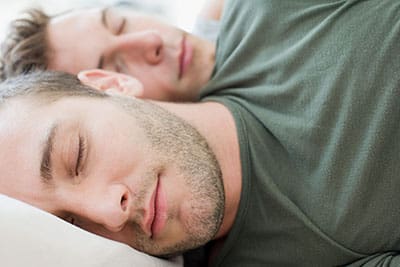Advertorial: Why you should sleep away this festive season
 There are few things worse than being unable to fall asleep, especially if your partner is snoring as you lie there counting the minutes, knowing that you are going to suffer in the morning.
There are few things worse than being unable to fall asleep, especially if your partner is snoring as you lie there counting the minutes, knowing that you are going to suffer in the morning.
Obviously the more anxious you get about being awake the less likely you are to fall asleep.
One of the interesting facts about insomnia is that it is closely linked to your lifestyle and habits, so with the holiday season fast approaching you could start planning a healthier holiday.
Lifestyle changes
Insomnia, diet and exercise are closely linked, so find some time to look at positive changes you can make in your life. No time? There’s no such thing as no time for you!
• Exercise: Get some exercise and if you are able to resolve stressful issues, do so.
• Sleep: Develop a sleep ritual at night that is aimed at calming down and relaxing before bedtime to prepare your body for sleep.
• Diet: Review your eating and drinking habits. Avoid stimulants such as coffee, alcohol and nicotine, especially a few hours before bedtime.
Insomnia
There are various types of insomnia. One cause is just plain old anxiety and stress over a particular event that is important to you. Unfortunately, some people do suffer more regularly from sleep deprivation and chronic insomnia and this is likely to affect their health and even their personality.
The reasons are varied; it could be a medical, physical or mental problem and there are some individuals who just worry about everything and cannot switch off at night. Of course, one of the major contributing factors is caused by our habits; all that coffee, nicotine and alcohol definitely won’t make you sleepy – so lay off the stimulants at night.
Sleep deprivation is bad for your health
If you haven’t slept well, you are more likely to be in a bad mood and unable to concentrate. Just ask your family and colleagues! In addition, it will affect your memory, (both short- and long term) which could cause some difficulties if you forget something important.
Sleeping less than six hours a night over a period of time has been associated with low-grade chronic inflammation, impaired immune function and could increase a person’s risk of developing obesity, type II diabetes and certain cardiovascular problems.
Overcoming the lack of sleep by minimising stress is a huge challenge and its effects on a person’s life should not be minimised.
Sleep hygiene
Sleep hygiene is a therapy that improves good sleeping patterns and reduces daytime sleeping or napping. Here are a few tips that will help:
• Minimise the amount of light, noise and temperature changes in the bedroom.
• Avoid eating large meals before bed, as indigestion can make falling asleep difficult.
• Avoid using stimulants for a few hours before bedtime.
• Avoid vigorous exercise during the two hours prior to retiring.
• Avoid bedtime activities that are not related to sleep (or sex).
• If worrying about time, cover the alarm clock to avoid anxiety.
Diet
Benefits of healthy fat: We have been bombarded with ‘fat is bad’ but suddenly this is no longer true. An analysis of thousands of people has found that those eating more saturated fat do not have more heart disease than those eating less. (It is important to ensure your saturated fat consumption is in moderation and within healthy guidelines.) In fact, saturated fats serve important functions in the body and are necessary for various metabolic functions.
Intermittent fasting: Many people are really scared of fasting, but it has been found that fasting a few days a week, or every other day can be a powerful way to normalise your weight. You probably won’t be ravenously hungry all the time, but intermittent fasting can help those sugar cravings and hunger pangs disappear.
Exercise
High intensity training: This is called ‘Peak Fitness Training,’ where once or twice a week you raise your heart rate up to your anaerobic threshold for 20 to 30 seconds, and then recover for 90 seconds – which can be repeated a few times during a training session. These cycles are preceded by a three minute warm up and two minute cool down so the total time invested is about 20 minutes. For some the intensity may be as simple as fast walking alternating with slow walking.
Remember to consult your doctor at Health Renewal to ensure that there are no medical issues that would prevent you from doing this.
Leave a Reply